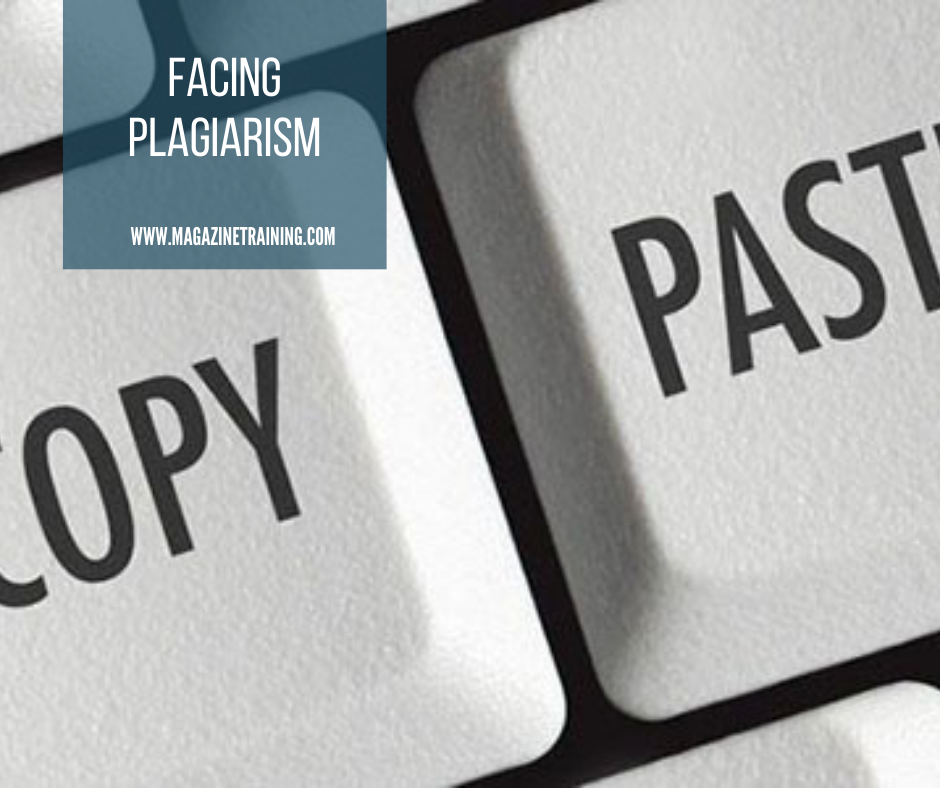
Has it happened to you?
Have you received an article you assigned to a new writer, plugged a well-turned phrase into an online search engine, and discovered the article was rife with sections lifted from another author’s work? It’s happened to me. More than once.
The assignment
Jessie wrote a funny book on her struggles with God. It did well, but I knew she needed work. I assumed she could confidently take on a tough assignment outside her area of expertise. I was wrong. She wrote well enough when it came to her own life. She wrote well enough on prayer or devotionals. But the piece I asked for demanded more. I had expected original research and reporting. I never expected plagiarism.
I thought I had not properly communicated my expectations. I outlined my problems with her draft, gave detailed instructions, pointed to relevant sites and sources where she might begin her work, and suggested she try again. The second draft was worse than the first: she rewrote my words and added nothing new.
The dissertation
Pria was in graduate school, pursuing a ministry degree. A mutual friend recommended she contact me so I could edit her dissertation on the spiritual implications of bioengineering. Her first pages were full of jargon, choppy, unclear, and repetitive. Later the words flowed, the syntax was smoother, the vocabulary was more accessible, and the imagery was engaging. At first, I thought Pria had finally warmed to her subject; then I realized this could not possibly explain the marked shift in the quality of her writing. She was passing off others’ writing as her own, instead of giving them credit. She argued her style of presenting the material was in keeping with academic practice in her country. I explained it was not acceptable here, and suggested she speak with her advisor about the matter.
Not just me
The instances I described are not my only encounters with plagiarism. I’ve probably read articles where I completely missed it. I have also seen some translate material into another language and pretend it was their own invention. Not everyone understands what counts as plagiarism or that it is an ethical issue.
Each time I discover plagiarism, especially by Christians, I am shocked. Perhaps I shouldn’t be. A Religion News Service article published late last year discussed instances of plagiarism by various Christian leaders. Additional examples can be found on the Christianity Today topic page on plagiarism.
Preventative measures
As an editor, how can you ensure that the articles you publish are not plagiarized? Here are some suggestions:
- Know your writers. Take care that in making assignments; don’t ask for what they are not comfortable with or can’t give.
- Be clear about what you expect to receive. Encourage authors to cite and give proper credit to others as needed.
- Pay attention to odd turns of phrase and the style, quality, and rhythm of the writing.
- Use search engines and other plagiarism detection tools to spot check articles you receive. There are many such tools for educators.
- Compare pieces you receive to recent articles and books on the same topic.
- Develop publishers guidelines for yourself, including definitions of plagiarism, self-plagiarism, preferred reference styles, and procedures to follow in checking for or handling suspected cases of plagiarism.
- Compare notes with other editors and publishers who have faced this problem.
- Pray for the Holy Spirit to guide you and give you discernment. Ask Him to give creativity and perseverance to your writers. Commit your work to Him. Finally, thank Him for His help.
By Kim Pettit, Magazine Training International board chair

Related posts
Magazine Training International’s mission is to encourage, strengthen, and provide training and resources to Christian magazine publishers as they seek to build the church and reach their societies for Christ.

